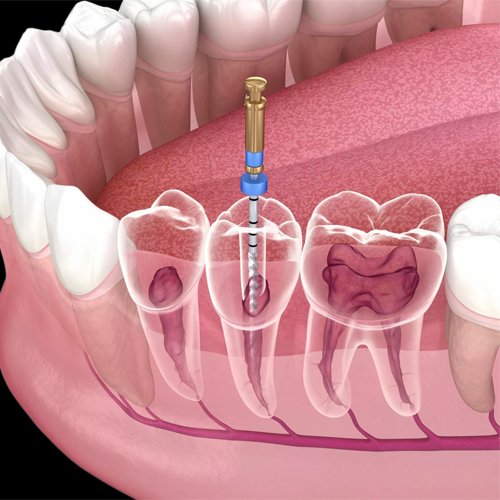What is root canal?

A root canal is a dental procedure designed to treat infections deep within the tooth's root canal system. This treatment becomes necessary when the soft tissue inside the root canal, known as the pulp, becomes inflamed or infected. The pulp contains nerves, blood vessels, and connective tissue that can become damaged due to deep decay, repeated dental procedures on the tooth, faulty crowns, cracks, or chips in the tooth, or trauma to the face.
The procedure typically starts with the dentist or endodontist (a specialist in treating the interior of teeth) administering local anesthesia to ensure the patient remains comfortable throughout the process. Next, they create an access hole in the affected tooth to remove the infected pulp tissue. Special instruments are then used to clean out the root canals and shape them to prepare for the filling material.
Once the canals are thoroughly cleaned, they are filled with a biocompatible material called gutta-percha, which seals off the canals to prevent recontamination. In some cases, a temporary filling is placed to close the access hole temporarily, especially if the tooth requires further restoration work like a crown.
After the root canal procedure is complete, the tooth will likely need a restoration, such as a crown, to protect it and restore full functionality. This is because a tooth that has undergone a root canal procedure can become brittle over time and is more prone to fractures.
Root canals have a reputation for being painful, but with modern techniques and anesthesia, the procedure is usually no more uncomfortable than getting a dental filling. In fact, root canal therapy is essential for saving teeth that would otherwise need to be extracted. It allows patients to retain their natural teeth, maintain proper chewing function, and preserve the natural appearance of their smile.
Overall, while the idea of a root canal may sound daunting, it is a highly effective treatment for addressing infections and preserving the health and function of the affected tooth. Regular dental check-ups and good oral hygiene practices are essential in preventing the need for root canal therapy by catching dental issues early before they progress to a more severe stage.













